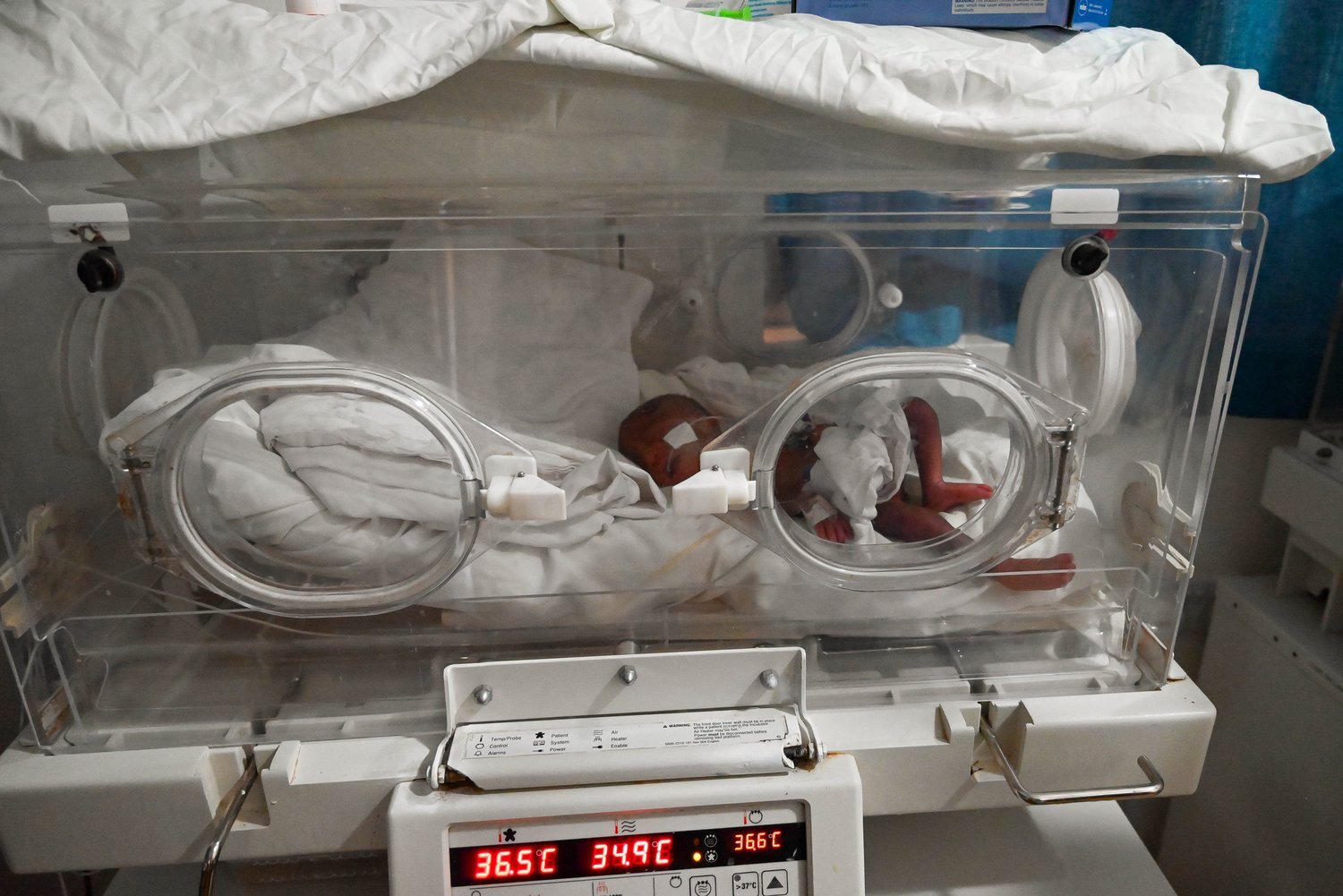Sadera, also known as Chief
Two years ago, a 13-year-old boy named Sadera* arrived at FAME, his young life hanging in the balance due to hydatid disease, a parasitic infection caused by a tapeworm. He needed urgent surgery to save his life. Following a month-long stay at FAME, he happily returned home, fully recovered and pain-free. Unfortunately, just nine months later, he returned, battling the same disease. This is Sadera's story.
After completing his primary school exams, Sadera experienced severe stomach pain. Initially, he attributed it to stress, as the exam results would determine his high school placement. However, the pain persisted even after the exams were completed.
“I went to the local clinic and they gave me medicine for five days. However, even after I finished it, I didn’t feel any better. I then tried using local herbs, but they didn’t help either. Finally, I started taking pilipili [Chili pepper], but it also didn’t work.”
FAME's Social Worker, Kitashu Nganana, explained that in the Maasai community, they consider anything with a bitter taste as medicine because they believe the bitterness can eliminate viruses or bacteria. The stronger the bitterness, the more effective it is thought to be.
“I had this pain for many months. It became so severe that I couldn’t stand upright and spent most of my time lying down. I was really sad that I couldn’t go grazing the cows with my father and brothers like we always do. The neighbors heard that I was sick and they came to visit me. It was one of them who told me about FAME.”
As he got sicker, the thought of going to the hospital became more attractive to Sadera. He discussed it with his parents and brothers, who all decided he should go.
“When my parents agreed to let me come to FAME, I encountered a significant challenge. The journey from our village to the bus stop is a three-hour walk and the bus ride to FAME takes four hours. Given my condition, walking for three hours was not possible for me. My brothers offered to carry me to the bus stop, but despite their strength, it was too far. Luckily, my family was able to rent a car that brought me here.”
A happy Sadera (left) poses with his big br0ther (right)
When Sadera arrived at FAME, it was nearly six hours since he had left home and he was unconscious. The FAME team admitted him and, after conducting several tests, diagnosed him with hydatid disease, which required immediate surgery on his stomach.
“When I woke up, I was really confused. I had no idea where I was and everything around me looked strange. However, my brother explained that I had undergone surgery and the doctors believed I would get better.”
Sadera spent a month at FAME. When he was ready to return home, the doctors advised him to always boil drinking water before consuming it. They explained that his diagnosis was due to drinking contaminated water. For Sadera, this was because he was drinking the same water their animals drank, because there was a shortage of clean water in his village and the nearby areas.
“I was so happy when I left FAME. I felt like my old self again. I could stand straight; I could walk! It was amazing and I couldn’t express my gratitude enough to the FAME medical team for the miracle they had worked on me.”
Unfortunately, nine months later, Sadera returned to FAME, experiencing the same symptoms as before.
“I was very sad when I got sick again. I knew the exact reason for my illness - I hadn’t followed the doctor’s advice to boil water before drinking it. I did try at first, but sometimes the water wouldn’t cool down quickly, so I resorted to drinking the same water as the cows when I took them to drink. I regret this very much.”
Sadera spent three weeks at FAME before being discharged to go home. It's been two years since then and he is still doing well and leading a happy life.
“I am grateful to FAME. When I returned, I thought the doctors might shout at me for not following their advice. But they were very kind to me. They explained that I should always drink boiled water at all times so as not to risk my health. Since then, I have only been drinking boiled water and I have been in good health ever since!”
Sadera also had exciting news to share
“I’ve just been selected as Chief by the elders in my village! I’m now the leader of the boys in my age group. I am very happy and it’s a great honor. They mentioned that one of the main reasons I was chosen is because of my strong work ethic. They said I work harder than all the other boys in the village. This is only possible because of the treatment I received at FAME, which transformed me from being bedridden to being strong again. Thank you.”
Sadera had one last thing to say:
“Just call me Chief!”
“I am thankful to FAME for helping us and many others. When I come across sick people in my village, I always tell them to go to FAME. It’s very far, but it heals people!”
Sadera’s big brother
*The patient’s name has been changed to protect his privacy and permission was secured to share his story. This interview has been translated from Maasai to English.


















